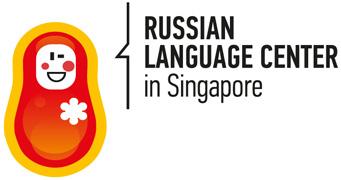Russia is one of the fast-growing emerging markets now and its re-entry into the world economic system has opened up an enormous and largely unexploited market for Western goods and services. Russia possesses a well-educated work force and vast natural resources; given this combination of factors, business opportunities in the region can only increase over time. Over 7000 US companies have already opened businesses in Russia, and Western European and Asian companies are even more actively investing in the region. Singapore is not an exception.
This year 2008 Singapore for the third time will host Singapore – Russian business forum. Jointly organized by International Enterprise (IE) Singapore, Troika Dialog and the Singapore Embassy in Moscow, the RSBF is Asia’s only leading business and networking platform for Russian/CIS, Singaporean and Asian businessmen to network, discuss business opportunities, and learn about the latest economic developments in Russia and in the Asian Region. Since the inaugural forum in 2006, RSBF has brought together top government officials and the prominent business elite in one platform for a vibrant exchange of ideas and exploration of commercial opportunities. Last year both Head of Russia’s Ministry of Economic Development Mr. Gref and Head of Singapore’s Ministry of Trade and Industry Mr. Lim Hng Kiang graced the event, with the special participants such as Minister Mentor Lee Kuan Yew, Oleg Deripaska (CEO of Basic Element), Ruben Vardanian (CEO of Troika-Dialog), Yuri Molchanov (Vice Governor, St. Petersburg) and others. And during special dialogue session with Minister Mentor Lee Kuan Yew, Mr. Herman Gref in his speech pointed out, that “we have only two problems, namely distance and language; and if last year Singapore airlines launched direct flight to Moscow solving distance problem, we still left with a problem of language barrier”, thereby addressing the point that most of Russian executives and decision makers are in their forties and above and most of them lack a knowledge of any foreign language. Of course, one could say that leaders can communicate through interpreters, but most businessmen and decision makers will easily understand Mr. Gref’s words if they recall their negotiations on sensitive topics.
Another issue is Banking. More and more Russians prefer to invest their money abroad partly because of the financial stability of Western and Eastern economies and partly because of the imperfection of Russian legislative base and arbitrariness of the Government. Most of investors do not know foreign language and the irony is that they do not want to deal with the Russian bank’s staff. This can easily be explained by the absence of the bank secrecy in Russia (yes, Russian secret service and Financial intelligent service could get any data they need from a bank or bank employers any time and Russian employees of foreign banks are most of the time citizens of Russia). The latest tendency is that more and more banks hire Russian-speaking managers or motivate their offshore client relationship managers to learn Russian, especially in such financial centers as London and Singapore.
